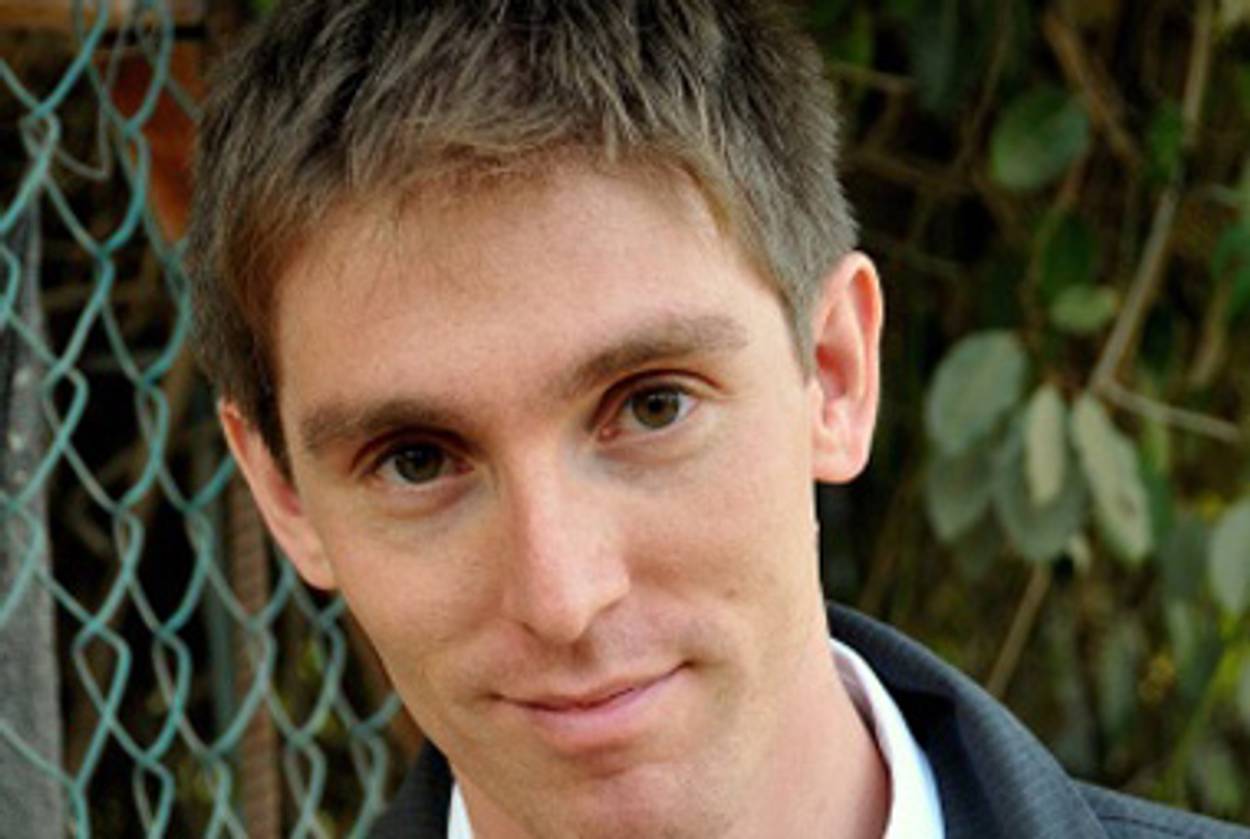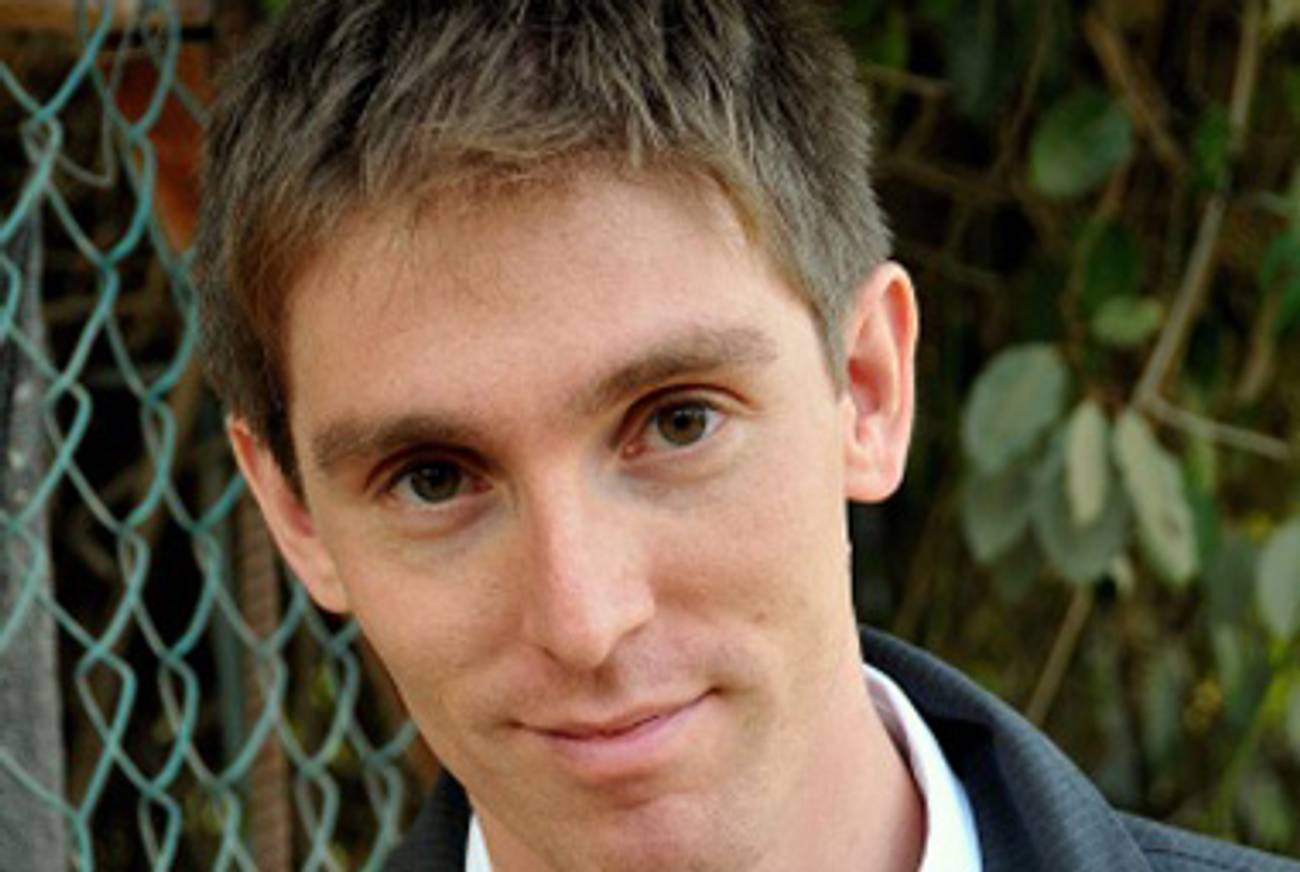An Afternoon With Avi Steinberg
The secular Jew who actually misses religion




“Mordechai was definitely her pimp,” Avi Steinberg tells me of Esther. “The pimp is what makes it happen. People in the know know that Mordechai is making things move in that story.” Steinberg, 31, knows a lot about pimps. Or at least more than you’d expect an Orthodox-reared Harvard grad to know about them. But after spending two years working in Boston as a prison librarian, he is, if not an authority on the world’s oldest profession, an informed voice on the subject.
Yet what brought our conversation around to the Purim story was not the characters he met while working the checkout desk and then profiled in his memoir. Running the Books is about the two years he spent working at a Boston prison, an experience that helped him do what Harvard could not help him do: Grow up. In addition to recommending titles to inmates, Steinberg taught them creative writing, collected their “kites” (the notes they left for each other on the shelves and in the books), and became more entangled in their lives than an agent of the state probably should. But we had been talking about the other famous Esther—Petrack, of America’s Next Top Model.
Steinberg’s interest in the reality show goes beyond a simple desire to look at beautiful women. He was piqued by parallels between his experience and hers: Both are graduates of Maimonides in Boston, and, until a week ago, both had appeared to be on similar religious tracks. Steinberg had abandoned Orthodoxy as a student at Harvard, right around the same age that Petrack had seemingly abjured her religious practice on ANTM. (Unless she hasn’t.) If Esther remains on the derech, the proper path, she probably won’t be removed from the Maimonides alumni newsletter, as Steinberg was when his book was published. “I loved Maimo,” he told me. “It saved me. I had gone to a shitty Cleveland day school. I arrived by going to Boston. I respectfully disagree with Noah Feldman. I don’t think it was such a radical place.” But Steinberg understands that Maimonides had to distance itself from him for pragmatic reasons, since he does discuss his movement away from Orthodoxy in a few different places in the book.
But don’t confuse Steinberg with another ex-Ortho who has written a memoir, Tablet Magazine columnist Shalom Auslander. Unlike Auslander, he isn’t angry about his upbringing. If anything, Steinberg’s tone, both in the book and in person, regarding his present religious practice (or lack thereof), is wistful. “It just makes me sad that I don’t have Shabbos anymore,” he said. “It’s not guilt. It’s something worse than guilt. I actually believe in God, which is really scary.” He continued: “There’s a whole discussion how the new year and the new month is up to people, but Shabbat is not up to people,” he explained, referring to the populace’s role in determining months and holidays by judging the size and shape of the moon. The Sabbath “just happens regardless of whether we decide to acknowledge it or not. …You either decide to ignore it or not. But there are those moments when you know you’re ignoring it and you know it’s still there.”
Though his practice slipped precipitously after he left Yeshiva University to attend Harvard in order to more easily “get with girls,” he still studies Jewish texts nearly every day. This love of learning hearkens back to the days when he attended a Gemara camp in Israel and took Rabbi Baruch Lanner’s class. “I love Lanner, you can quote me on that. I think he gave a great shiur. I didn’t know him for the bad stuff,” he added, referring to the accusations of sexual abuse of minors and convictions on at least two counts. “He should be judged and put into jail for the crimes he committed. But let me tell you right now, the guy gave a great shiur.”
Maybe if Lanner had shown up in his prison library, Steinberg could’ve steered him to the Sylvia Plath section (which he had considered dismantling so as not to encourage the suicidal ideation of some of the female inmates). But most of the prisoners that Steinberg encountered were not like himself, and that is the basis for some of the criticism regarding his memoir—that it is simply another book in the “white person helps minorities while learning life lessons from them” oeuvre. “There’s nothing I can do about that I suppose,” he said, shrugging. “I’m just who I am and whatever I write or you write or anyone writes, you can get criticized on the basis of who you are.”
Running the Books [Amazon]
Related: Orthodox Paradox [NYT Magazine]
Dvora Meyers is a journalist and author based in Brooklyn.